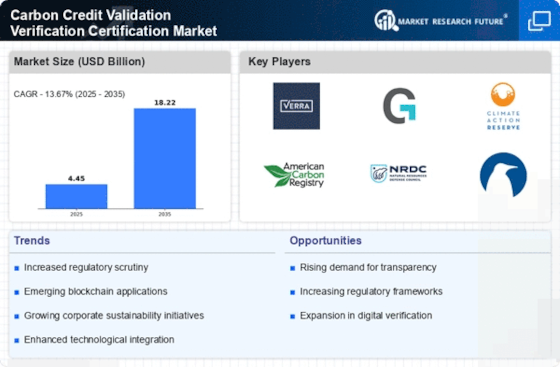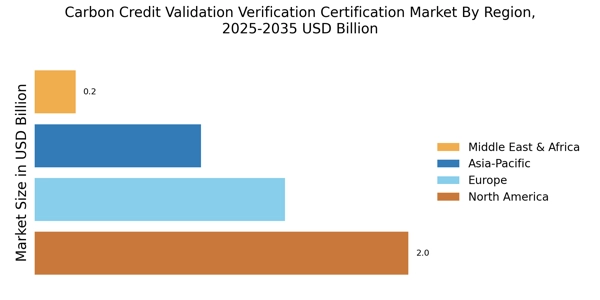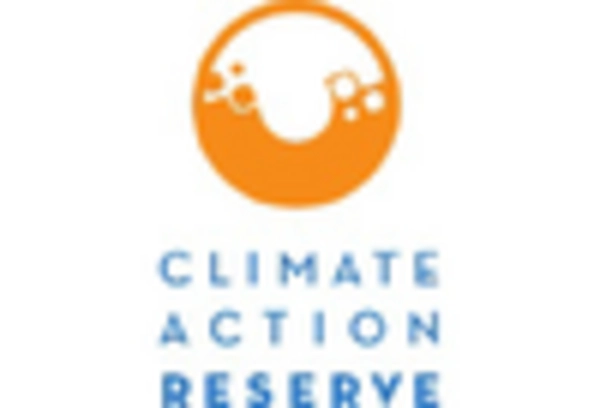The Carbon Credit Validation Verification Certification Market is currently characterized by a dynamic competitive landscape, driven by increasing regulatory pressures and a growing emphasis on sustainability across various sectors. Key players such as Verra (US), Gold Standard (CH), and DNV (NO) are strategically positioning themselves through innovation and partnerships to enhance their market presence. Verra (US) has focused on expanding its portfolio of verified carbon standards, which appears to be a response to the rising demand for credible carbon credits. Meanwhile, Gold Standard (CH) emphasizes transparency and stakeholder engagement, which seems to resonate well with environmentally conscious investors. DNV (NO), on the other hand, is leveraging its expertise in risk management to offer comprehensive certification services, thereby enhancing its competitive edge in the market.
The business tactics employed by these companies reflect a moderately fragmented market structure, where collaboration and local adaptation are crucial. For instance, many players are localizing their operations to better serve regional markets, which may optimize their supply chains and enhance customer relationships. This collective approach not only strengthens their market positions but also fosters a competitive environment where innovation and service quality are paramount.
In August 2025, Verra (US) announced a partnership with a leading technology firm to develop a blockchain-based platform for carbon credit tracking. This strategic move is likely to enhance transparency and traceability in carbon credit transactions, addressing a critical concern among stakeholders. By integrating advanced technology, Verra (US) appears to be setting a new standard for accountability in the carbon credit market, which could potentially attract more participants and investors.
In September 2025, Gold Standard (CH) launched a new initiative aimed at increasing access to carbon credits for small and medium-sized enterprises (SMEs). This initiative is significant as it not only broadens the market base but also aligns with global sustainability goals by empowering smaller businesses to participate in carbon offsetting. Such strategic actions may enhance Gold Standard's reputation as a leader in inclusive sustainability practices, thereby differentiating it from competitors.
In July 2025, DNV (NO) expanded its certification services to include a new framework for assessing the sustainability of carbon offset projects. This expansion is indicative of DNV's commitment to maintaining high standards in the industry. By offering a more comprehensive suite of services, DNV (NO) is likely to attract a wider range of clients, from corporations to governmental bodies, seeking reliable certification.
As of October 2025, the competitive trends in the Carbon Credit Validation Verification Certification Market are increasingly influenced by digitalization, sustainability, and the integration of artificial intelligence. Strategic alliances among key players are shaping the landscape, fostering innovation and enhancing service delivery. Looking ahead, it is anticipated that competitive differentiation will evolve, with a shift from traditional price-based competition to a focus on technological advancements, innovative solutions, and supply chain reliability. This transition may redefine how companies engage with their clients and stakeholders, ultimately driving the market towards a more sustainable future.


















